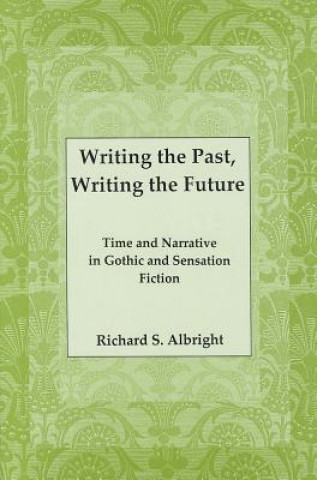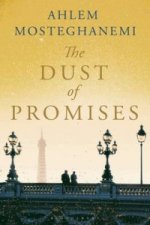
Versand
Kaufberater





Passt nicht? Macht nichts! Bei uns ist die Rückgabe innerhalb von 30 Tagen möglich
 Geschenkgutschein
In einem beliebigen Wert
Geschenkgutschein
In einem beliebigen Wert
Mit einem Geschenkgutschein können Sie nichts falsch machen. Der Beschenkte kann sich im Tausch gegen einen Geschenkgutschein etwas aus unserem Sortiment aussuchen.
Writing the Past, Writing the Future
 Englisch
Englisch
 358 b
358 b
30 Tage für die Rückgabe der Ware
Das könnte Sie auch interessieren


This book links popular British fiction from the 1790s through the 1860s to anxieties about time. The cataclysm of the French Revolution, discoveries in geology, biology, and astronomy that greatly expanded the age and size of the universe, and technological developments such as the railway and the telegraph combined to transform the experience of time and dramatize its aporetic natureAtime as inarticulable contradiction. Themes of usurpation, bigamy, and stolen identity that characterize popular fiction during this period reflect anxieties about inheritance. Edmund Burke's Reflections on the Revolution in France characterizes English history as an unbroken and orderly chronicle of property, generations, and values, in contrast to the chaotic events taking place in France. Albright uses Burke's "sure principle of transmission" as the idealized, coherent view of time as narrative and argues that many popular novels of this period encode discourses on temporality in which time's aporias are imaginatively reconciled through a variety of narrative strategies. Ann Radcliffe's The Mysteries of Udolpho, written during the Terror of the French Revolution, uses a past setting, descriptions of sublime and picturesque landscapes, and the heroine's prolonged suspension between memory and expectation to create a dreamy temporality that offers an antidote to revolutionary fears. Charles Robert Maturin's Melmoth the Wanderer employs narrative to "humanize" what Frank Kermode calls the "disorganized time" represented by "the interval between tick and tock," an effort that assumes greater importance in response to industrialization's dehumanizing effects. Mary Shelley's The Last Man capitalizes on the Romantic theme of "lastness," weaving together memory and prophecy to attain a narrative perspective that encompasses the whole of human history. Albright concludes with a chapter on the sensation novels of the 1860's, which bring Gothic themes of usurpation from the distant past to the contemporary world of railways and divorce courts. Writing the Past, Writing the Future offers a fresh approach that focuses less on feminist and psychoanalytic approaches to Gothic and sensation fiction than on the contemporary temporal anxieties often encoded in these popular genres. While there has been some criticism that has dealt with temporal discourses within individual works-most notably, The Last Man?there has not been a wider exploration of the topic that encompasses the period from about 1790 to 1870. Rather than attempt an exhaustive survey of a large number of novels, Albright has focused on several key texts from this period, analyzing them with the aid of the temporal meditations of Aristotle, Augustine, and Heidegger, as well as Paul Ricoeur's work on the relationship between time and narrative.
Informationen zum Buch
 Englisch
Englisch


 Kontakt
Kontakt Wie einkaufen
Wie einkaufen
































